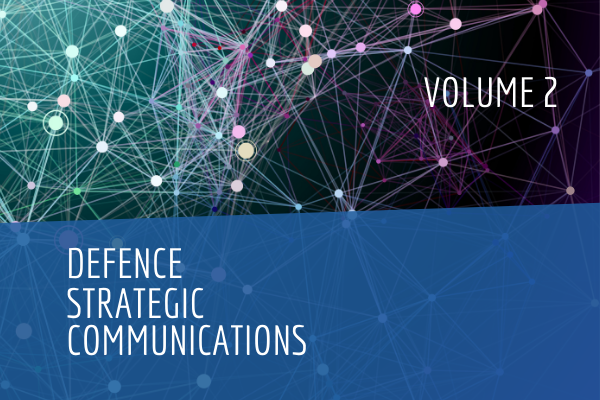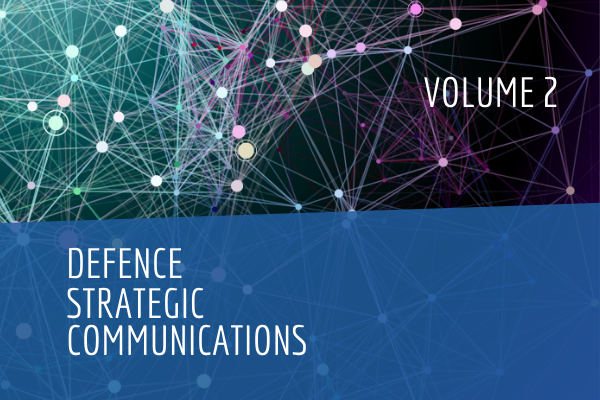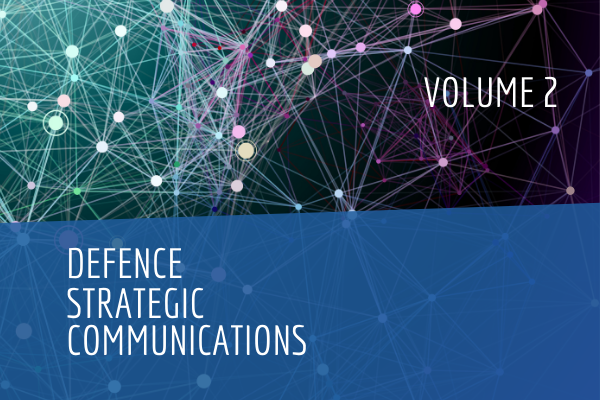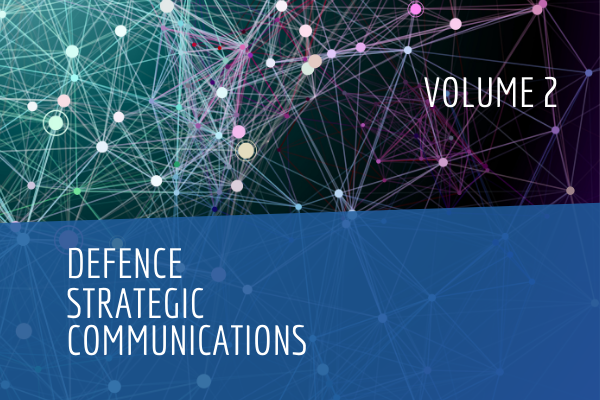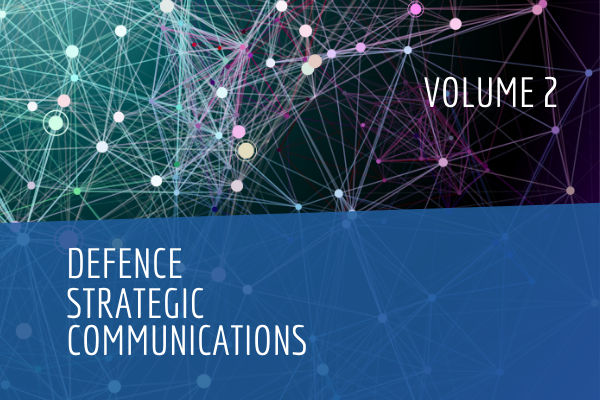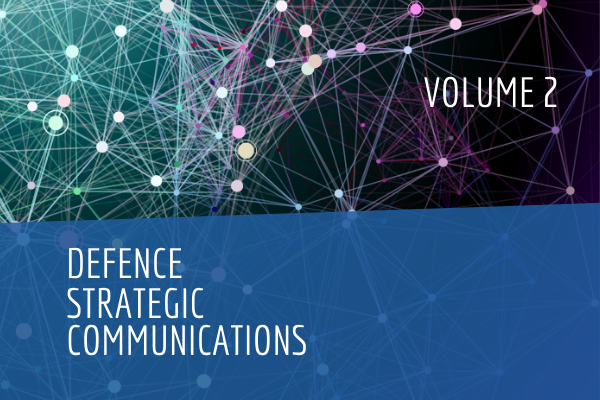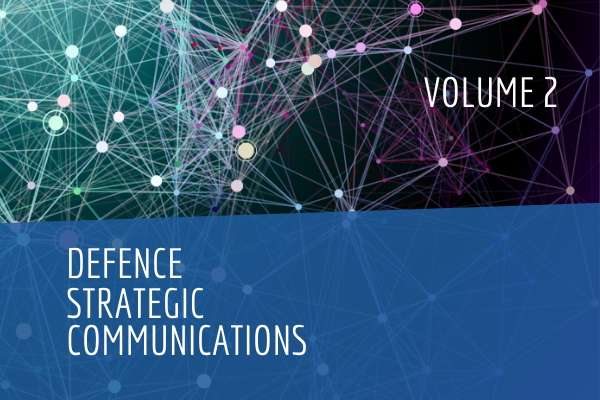Abstract
In strategic communications, dominated by concerns about the use and meaning of words, messages, images, and symbols for strategic influence and effect, there is growing recognition of the importance of empathy, but a limited understanding of what it might look like. Defined in its simplest form as the attempt to understand the perspectives, experiences, and feelings of another, empathy is both a communicative and a performative act. Its value is dependent on its ability to be demonstrated and understood, and its power can be harnessed by governments to connect with a wider audience and develop more responsive policies.
This article examines the varied dynamics of empathy through the lens of American politics at domestic and international levels. It argues that empathy is a multifaceted and complex concept with transformative power, but also with practical and political limitations, which deserves far greater attention from strategic communications practitioners.
Keywords: empathy, politics, communication, United States, presidents, strategy
About the author
Claire Yorke is a doctoral researcher on empathy in diplomacy. She managed the International Security Research Department at Chatham House, and was a Parliamentary Researcher in the House of Commons, UK.
Bibliography
Ahmed, Sara, The Cultural Politics of Emotion, (Routledge, 2013).
Ambinder, Marc, ‘Feeling Your Pain’, The Week, 5 October 2012.
Berlant, Lauren, ‘The Epistemology of State Emotion’, in Dissent in Dangerous Times, Austin Sarat (ed.), (University of Michigan Press, 2005), pp. 46-78.
Bially Mattern, Janice, ‘A Practice Theory of Emotion for International Relations’, International practices (2011): 63-86.
Bloom, Paul, ‘Against Empathy’, The Boston Review (2014).
Staff, ‘The Baby in the Well’, New Yorker 20 (2013).
Booth, Ken, and Nicholas Wheeler, The Security Dilemma: Fear, Cooperation, and Trust in World Politics, (Palgrave Macmillan, 2008).
Brooks, Rosa, How Everything Became War and the Military Became Everything, (New York: Simon & Schuster, 2016).
Cameron, Lynne, ‘The Interactional Dynamics of Empathy’, (2012).
Cameron, Lynne J., Metaphor and Reconciliation: The Discourse Dynamics of Empathy in Post-Conflict Conversations, (Routledge, 2012).
Clinton, Bill and George W. Bush, Second Presidential Debate 1992.
Clinton, Hillary R., ‘Hillary Rodham Clinton Speaks on Security, Inclusive Leadership’, Georgetown University, 2015.
Cornish, Paul, Julian Lindley-French, and Claire Yorke, Strategic Communications and National Strategy, (London: Royal Institute of International Affairs, 2011).
Crawford, Neta C., ‘Institutionalizing Passion in World Politics: Fear and Empathy’, International Theory 6, no. 03 (2014): 535-57.
Lebow, Richard Ned, A Cultural Theory of International Relations, (Cambridge University Press, 2008).
Lindemann, Thomas, Causes of War: The Struggle for Recognition, (ECPR Press, 2011).
McLuhan, Marshall, Understanding Media: The Extension of Man, (Corte Madera: Gingko Press, 2013).
Moisi, Dominique, The Geopolitics of Emotion: How Cultures of Fear, Humiliation, and Hope Are Reshaping the World, (Anchor, 2010).
Nixon, Richard M., President’s Speech File 1969-74, Presidential Personal File, President’s Speech File, 25 February 1972, Peking, China – Reciprocal Dinner, Box SFSM PPF 073.
Nixon, Richard M., ‘Inaugural Address’, 20 January 1969.
Nussbaum, Martha C., Upheavals of Thought: The Intelligence of Emotions, (Cambridge University Press, 2003).
Obama, Barack, The Audacity of Hope: Thoughts on Reclaiming the American Dream, (Canongate Books, 2007).
Obama, Barack, ‘Farewell Address’, The White House, 11 January 2017.
Obama, Barack, ‘Remarks by the President at Cairo University, The White House, 4 June 2009.
Paul, Christopher, Strategic Communication: Origins, Concepts, and Current Debates, (e-Book: Praeger, 2011).
Pedwell, Carolyn, ‘Affective (Self-)Transformations: Empathy, Neoliberalism and International Development’, Feminist Theory 13, no. 2 (1 August 2012): 163-79.
Pedwell, Carolyn, Affective Relations: The Transnational Politics of Empathy, (Palgrave Macmillan, 2014).
Ross, Andrew A.G., Mixed Emotions: Beyond Fear and Hatred in International Conflict, (University of Chicago Press, 2013).
Saurette, Paul, ‘You Dissin Me? Humiliation and Post 9/11 Global Politics’, Review of International Studies 32, no. 3 (2006): 495-522.
Senate Foreign Relations Committee Hearings, ‘Authorization For The Use of Military Force Against ISIL’, December 9, 2014.
Shirky, Clay, ‘The Political Power of Social Media: Technology, the Public Sphere, and Political Change’, Foreign Affairs 90, no. 1 (2011): 28-41.
Shogan, Colleen J., ‘The Contemporary Presidency: The Political Utility of Empathy in Presidential Leadership’, Presidential Studies Quarterly 39, no. 4 (2009): 859-77.
Staff, ‘A Politics of Empathy: Encounters with Empathy in Israel and Palestine’, Review of International Studies (2015).
Staff, ‘Economies of Empathy: Obama, Neoliberalism, and Social Justice’, Environment and Planning D: Society and Space 30, no. 2 (1 April 2012): 280-97.
Staff, ‘Transforming Conflict Trust, Empathy, and Dialogue’, International Journal of Peace Studies 17, no. 2 (2012): 33-55.
Tatham, Steve, ‘Strategic Communication: A Primer’, Defence Academy of the United Kingdom 2008.
Terrill, Robert E., ‘Unity and Duality in Barack Obama’s “A More Perfect Union”’, Quarterly Journal of Speech 95, no. 4 (2009): 363-86.
Thatcher, Margaret, ‘Margaret Thatcher speaks to BBC’, 17 December 1984.
Tzu, Sun, The Art of War.
Waldman, Matt, ‘Strategic Empathy: The Afghanistan Intervention Shows Why the U.S. Must Empathize with Its Adversaries’, New America Foundation, April 2014.
Waldman, Thomas, War, Clausewitz and the Trinity, (Ashgate Publishing, Ltd., 2013).
Westen, Drew, Political Brain: The Role of Emotion in Deciding the Fate of the Nation, (PublicAffairs, 2008).
Wheeler, Nicholas J., ‘Investigating Diplomatic Transformations’, International Affairs 89, no. 2 (2013): 477-96.
White, Ralph K., ‘Empathizing with Saddam Hussein’, Political Psychology 12, no. 2 (1991): 291-308.
Willingham, Emily, ‘Yes, Donald Trump is a Master of Empathy’, Forbes, 3 November 2016.
Wolf, Reinhard. ‘Respecting Foreign Peoples: The Limits of Moral Obligations’, Journal of International Relations and Development 19, no. 1 (2016): 1-25.
Yarhi-Milo, Keren. ‘In the Eye of the Beholder: How Leaders and Intelligence Communities Assess the Intentions of Adversaries’, International Security 38, no. 1 (2013): 7-51.
Zenko, Micah, Red Team: How to Succeed by Thinking Like the Enemy, (Council on Foreign Relations, Washington DC, Nov 2015).
